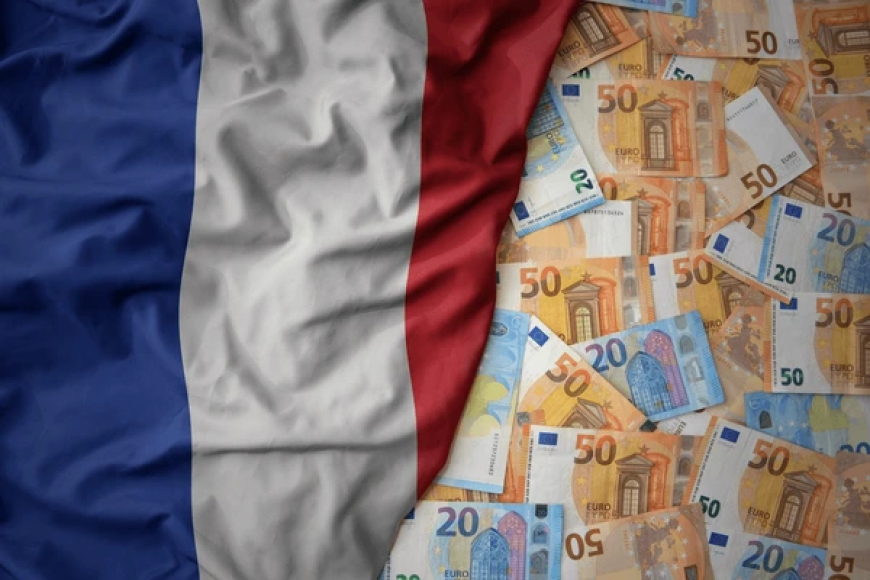France’s Tax System Explained: High Taxes, Social Benefits, and Smart Strategies for Optimization
France offers generous healthcare, pensions, and social programs, but at the cost of one of the highest tax burdens in Europe. Learn how income tax, social contributions, and wealth tax work — and discover strategies to reduce your tax liability legally.

Introduction: The Trade-Off in France
France has long been a paradox: a land of cultural beauty, luxury, and high living standards, but also one of the most heavily taxed nations in Europe. The French state prides itself on funding universal healthcare, world-class education, generous pensions, and extensive social security programs. But all of this comes at a price: citizens and businesses face some of the highest tax rates in the developed world.
For individuals and companies considering France, the challenge is clear: how do you enjoy its benefits while minimizing the financial burden?
👉 If you want to compare France with other EU options, check out our deep dives on Germany, Ireland, and Portugal.
1. Personal Income Tax in France
France uses a progressive tax system with rates ranging from 0% to 45%, plus surcharges for very high earners.
-
Income brackets (2025 figures approximate):
-
0%: up to €11,294
-
11%: €11,295 – €28,797
-
30%: €28,798 – €82,341
-
41%: €82,342 – €177,106
-
45%: above €177,106
-
-
Special surcharges:
-
High earners may face an additional “exceptional contribution” of up to 4%, pushing effective top rates above 49%.
-
-
Family quotient system: taxation depends on household composition (married couples and children lower the effective tax rate).
Optimization Strategies for Individuals
-
Leverage deductions: childcare expenses, charitable donations, home renovation (energy-efficient upgrades).
-
Plan residency: partial-year residents can structure income to fall under favorable tax treatment.
-
Wealth relocation: some high-net-worth individuals maintain French residency only part of the year, shifting assets abroad to avoid the full impact of French taxes.
2. Social Contributions: The Hidden Tax
On top of income tax, France imposes very high social charges (contributions sociales).
-
For employees, this can add 20–25% of gross salary.
-
For self-employed professionals, contributions can exceed 35%.
-
Employers pay an additional 45%+ on top of gross salaries.
This means that the real cost of employment in France is among the highest in the OECD.
👉 Compared with Estonia’s flat 33% employer contribution or Ireland’s lighter employer burden, France feels extremely heavy.
3. Wealth Tax and Capital Gains
France abolished its broad wealth tax (ISF) in 2018 but replaced it with the IFI (Impôt sur la Fortune Immobilière), a wealth tax on real estate assets.
-
Applies to individuals with real estate holdings over €1.3 million.
-
Rates range from 0.5% to 1.5% annually.
Capital gains on real estate and securities are generally taxed at a flat 30% (the “flat tax” or PFU), which includes income tax and social contributions.
Optimization Tip
Many French residents invest via life insurance wrappers (assurance-vie), which provide significant tax advantages for long-term savings and inheritance planning.
4. Corporate Tax in France
France has gradually reduced its corporate tax rate to 25% (from nearly 34% a decade ago), making it more competitive within the EU.
-
Standard corporate tax rate: 25%.
-
SMEs benefit: reduced rate of 15% on the first €42,500 of profit if conditions are met.
-
Additional levies: social contributions and local business taxes can still increase the effective burden.
👉 By comparison, Ireland offers 12.5%, Estonia defers corporate tax until distribution, and Cyprus caps it at 12.5%.
5. Value-Added Tax (VAT)
France applies one of the highest standard VAT rates in the EU: 20%.
-
Reduced rates:
-
10% on restaurants, transport, and some services.
-
5.5% on food, books, and essential goods.
-
2.1% on medicines and newspapers.
-
For international companies selling digital goods, France is a key test case because VAT compliance is enforced rigorously under EU law.
6. Expat Tax Regimes in France
France is not traditionally viewed as a tax haven for expats, but it does offer certain reliefs:
-
Inbound regime: certain expatriates working in France can benefit from partial exemptions on salary and bonuses for up to 8 years.
-
Cross-border living: some individuals work in France but maintain residency in neighboring low-tax countries like Monaco or Switzerland.
👉 Compare this with Portugal’s NHR regime explained here or Malta’s Non-Dom status see here.
7. How to Optimize Taxes in France
-
Use assurance-vie and other investment wrappers to defer or reduce taxation.
-
Consider dual residency strategies, especially if splitting time between France and lower-tax jurisdictions.
-
Structure businesses to take advantage of reduced SME rates or relocate intellectual property (IP) to lower-tax EU countries.
-
For mobile professionals, consider operating through an Estonian OÜ (company) and drawing limited dividends in France.
8. The French Paradox: High Cost, High Reward
France remains one of the most expensive countries in the world to live and do business, but also one of the most generous in terms of state support. Residents enjoy:
-
World-class healthcare (largely free at point of use).
-
Strong worker protections and pensions.
-
Family and education benefits that outpace most other EU states.
The price is steep: France’s tax-to-GDP ratio is among the highest in the OECD, at around 46%.
Conclusion: France for the Brave
France is not a tax-friendly jurisdiction in the way Ireland, Cyprus, or Portugal position themselves. But for those who value lifestyle, stability, and social benefits, it offers a fair trade-off.
Tax optimization in France requires careful planning: leveraging deductions, utilizing assurance-vie, structuring businesses efficiently, and considering cross-border strategies. Done right, you can enjoy the best of France while mitigating its heavy fiscal bite.
👉 For more detailed comparisons, explore our guides to Germany, United Kingdom, and Portugal.
What's Your Reaction?
 Like
0
Like
0
 Dislike
0
Dislike
0
 Love
0
Love
0
 Funny
0
Funny
0
 Angry
0
Angry
0
 Sad
0
Sad
0
 Wow
0
Wow
0

































































